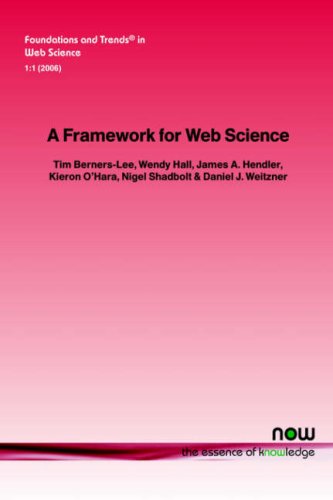Social Goals of Web Science
There are two important epistemological questions for Web Science. The first is what properties will future platforms need to have in order to allow as much information as possible to gravitate to the Web without imposing structure or governing theories upon it? One aim of the Web is to facilitate rational discussion of ideas, rather than the sorts of rancorous ad hominem attacks that make up rather too much of what is loosely called debate [30].
And secondly, the Web has a radically decentralised structure. Given that, of course it can be used frivolously or maliciously. How can we make it more likely rather than less that good science and good epistemology ends up in the Web, and not superstition? Indeed, is that a good thing? By and large, most people behave in good faith with respect to each other in most walks of life. And opinions differ, even in good faith. But there is a constant trickle of evidence that the Web is being used to cement opinions, in polarised political situations [3], in marginalised groups [272], and even in terrorist circles [245, 285]. Can we find the best balance between free exchange of opinion and restricting opportunities for deliberate self-marginalisation?
Notes:
Epistemological questions for Web Science. Such as providing an online environment that allows rational discussion without imposing structure on it.
Folksonomies: centrism community web science online communities discourse
Taxonomies:
/science (0.709082)
/law, govt and politics (0.408376)
/business and industrial/energy/electricity (0.405231)
Keywords:
Web Science (0.954199 (positive:0.369250)), epistemological questions (0.944745 (positive:0.369250)), Web Science Epistemological (0.892890 (neutral:0.000000)), rational discussion (0.878694 (positive:0.485869)), important epistemological questions (0.839724 (positive:0.369250)), radically decentralised structure (0.819896 (positive:0.370807)), ad hominem attacks (0.807604 (negative:-0.385812)), good faith (0.628952 (positive:0.556587)), Social Goals (0.505431 (neutral:0.000000)), online environment (0.499755 (positive:0.601661)), constant trickle (0.489897 (negative:-0.442010)), governing theories (0.466597 (neutral:0.000000)), terrorist circles (0.460403 (negative:-0.316726)), deliberate self-marginalisation (0.453288 (positive:0.816305)), good thing (0.446559 (positive:0.458084)), good epistemology (0.444725 (neutral:0.000000)), political situations (0.443472 (negative:-0.421104)), best balance (0.432889 (positive:0.816305)), free exchange (0.429334 (positive:0.816305)), good science (0.413993 (neutral:0.000000)), opinions (0.207931 (negative:-0.442010))
Entities:
Web Science Epistemological:PrintMedia (0.924247 (neutral:0.000000))
Concepts:
Epistemology (0.977337): dbpedia | freebase | opencyc
Scientific method (0.895285): dbpedia | freebase
Science (0.822012): dbpedia | freebase | opencyc
Belief (0.784552): dbpedia | freebase
Reason (0.773799): dbpedia | freebase
Ad hominem (0.767033): dbpedia | freebase | yago
Philosophy (0.697482): dbpedia | freebase | opencyc
Truth (0.622965): dbpedia | freebase





